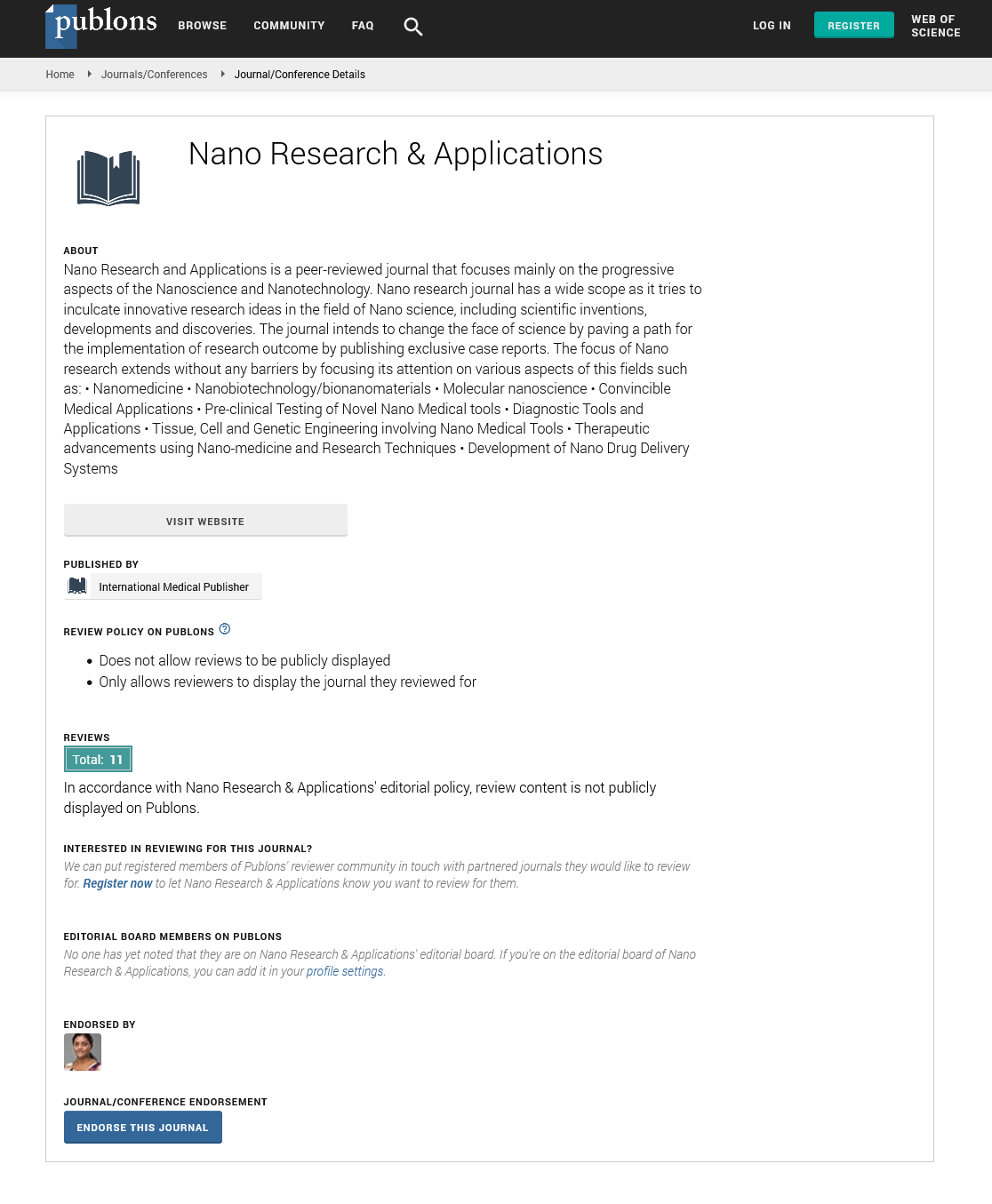ISSN : 2471-9838
Nano Research & Applications
Breakthrough in graphene structures for the next generation energy storages
World Congress on Materials Science & Engineering
August 23-25, 2018 Amsterdam, Netherlands
Tereza M Paronyan
HeXalayer, LLC, Kentucky, USA Northern Kentucky University, USA
Posters & Accepted Abstracts: Nano Res Appl
DOI: 10.21767/2471-9838-C4-018
Abstract
High capacity energy storage is a fundamental barrier to widespread, efficient, and cost-effective implementation of renewable energy resources. Graphite-based energy storage devices, such as lithium-ion batteries (LIBs), are the most reliable energy storage devices for portable electronics, electric vehicles (EV) and electric grid storage due to their high energy density, high power density, stability, low cost, and safety. EV technology still faces some key challenges in wide-scale development and deployment, and it is hampered by a short range and the lack of a grid-charging infrastructure. Battery anode holds the key in solving both these issues, as a way of storing energy on EVs themselves and on the evolving electricity grid. We present newly developed 3D graphene structures named incommensurate multilayer graphene (IMLG) that performs exceptional high reversible capacities up to 1600 mAh/g (430% higher of graphite) applied as an anode in LiBs cells by replacing the commercial graphite. Our study revealed a new mechanism of lithium intercalation into multilayer graphene structures with the possibility to achieve up to 1674 mAh/g capacity in finite multilayers. It appears unique physical and electronic properties of incommensurately-stacked/ rotated layers enable full diffusion and reversible intercalation of large amounts of lithium within interlayer spaces. Lithium actively absorbs/desorbs on both the outer and inner surfaces of incommensurate graphene, providing highly efficient charge transfer. We also discuss the feasibility of IMLG synthesis technology and our approach to its commercialization as an advanced anode for next-generation lightweight, flexible and powerful batteries.
Biography
E-mail:
T.Paronyan@hexalayer.com
Google Scholar citation report
Citations : 387
Nano Research & Applications received 387 citations as per Google Scholar report
Nano Research & Applications peer review process verified at publons
Abstracted/Indexed in
- Google Scholar
- China National Knowledge Infrastructure (CNKI)
- Directory of Research Journal Indexing (DRJI)
- WorldCat
- Publons
- Secret Search Engine Labs
- Euro Pub
Open Access Journals
- Aquaculture & Veterinary Science
- Chemistry & Chemical Sciences
- Clinical Sciences
- Engineering
- General Science
- Genetics & Molecular Biology
- Health Care & Nursing
- Immunology & Microbiology
- Materials Science
- Mathematics & Physics
- Medical Sciences
- Neurology & Psychiatry
- Oncology & Cancer Science
- Pharmaceutical Sciences
